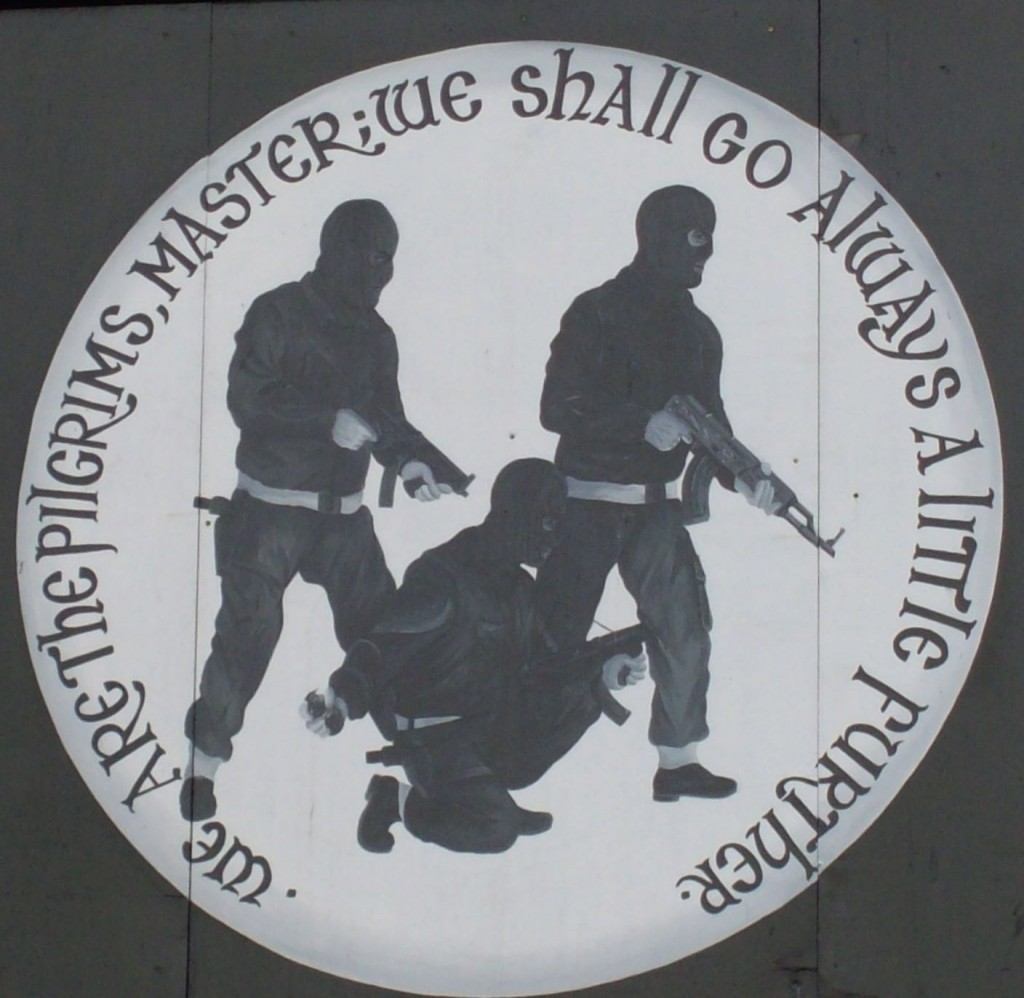
I walked away from my conversations yesterday with a sense of pessimism about the future of Northern Ireland. The people I met had experienced so much pain, and expected so much more yet to come, that I could not help but be touched by their perspective. They firmly believed that the war had only paused. That they had been prevented from winning by politicians unwilling to approve the necessary measures that would make shoot-to-kill an across-the-board reality. And that as a consequence, the resumption of the war was inevitable. More blood would be shed, and more people would die.
And that worried me. Because in every trip I’ve made here beginning in 2008, the feeling of fragility, of the bandage covering deep unhealed wounds unraveling at the edges, has only intensified.
I spent my afternoon today interviewing a former member of the Red Hand Commando*, one of the most effective, or notorious, depending on your perspective Loyalist paramilitary organizations. I walked away from that interview with a sense of hope, not dread, for the future.
Yesterday was about fear and an expectation of the worst. Fear that the IRA had not gone away, that the relative calm was only a facade, that the turmoil along the border would explode. Expectation that things would “kick off” again, and when they did it would be a brutal, bloody mess.
Today was different. My contact was unapologetic about his past, but recognized the awfulness of what it meant to go to war and to be at war in a place where people know each other, recognize each other, live next to each other, and were killing each other. And he was determined that the current generation, and future generations, should not have to go through that hell again.
He did not apologize for his politics. And he recognized the reality of poverty, of joblessness, of educational failure, of non-existent opportunities, of feelings of being abandoned by a Unionist political elite that only seems to acknowledge and turn to his community when it needs someone to do the dirty work. And yet the last thing he said to me, when I asked him what he saw for the future, was this:
This is no longer about us. For future generations, we can’t be selfish. The world will be a better place. We can only focus on our wee bit first. Hope, hope, hope. Give hope, and keep hope.
And so I hope for the future of this place, for the people I have come to know and respect and have real affection for across the numerous sectarian, political, and class divides, and for those that I haven’t yet met. Hope.
*I hate myself for continuing to link to Wikipedia, but hey, this is a different kind of media. Students, do not let yourselves think that this is a substitute for actual, scholarly, research.